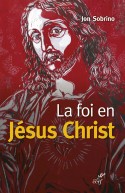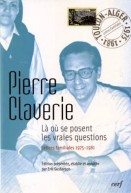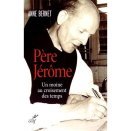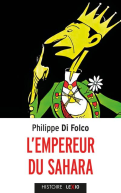
Georges Anawati (1905-1994)
Collection L'Histoire à vif
368 pages - mai 2008
45,10€
Chrétien oriental, originaire d’Alexandrie, Georges Anawati avait toutes les raisons de partager les préventions de son milieu face à l’islam. La rencontre de Louis Massignon et de Taha Hussein, son entrée chez les dominicains et un don exceptionnel pour l’amitié vont en décider autrement : toute sa vie, il va aller à la rencontre de ce monde musulman si redouté autour de lui. Égyptien, il noue de solides amitiés avec les oulémas de l’Université d’al-Azhar et publie en 1948, en collaboration avec Louis Gardet, une « Introduction à la théologie musulmane » qui fera date. En 1953, avec d'autres dominicains, il fonde au Caire l’IDEO (Institut Dominicain d’Études Orientales) dont la vocation est de mieux connaître le monde de l’islam par sa culture, « en dehors de tout prosélytisme ». Travailleur infatigable, il laisse un œuvre impressionnante dans le domaine de la philosophie arabe médiévale et de l’histoire des sciences arabes, qui lui valut un grand respect de l’élite intellectuelle musulmane. Au concile Vatican II, il est un des inspirateurs du nouveau regard de l’Église catholique sur l’islam, dont il restera un observateur lucide. Artisan inlassable du dialogue islamo-chrétien, Georges Anawati a surtout montré la place irremplaçable de l’amitié si l’on veut aller à la rencontre de l’autre. Un message pour notre temps.
--
A Christian of the Orient, native of Alexandria, Georges Anawati had every good reason to share the reservations of his environment toward Islam. Meeting Louis Massignon and Taha Hussein, entering into the Dominican order and his exceptional gift for friendship made him do otherwise: all his life, he sought better knowledge the Muslim world so feared by those around him. An Egyptian, he wove solid bonds of friendship with the ulemas of the University in al-Azhar and in 1948, he co-published with Louis Gardet an ‘Introduction à la théologie musulmane’ which was a landmark. In 1953, with other Dominicans, he founded the IDEO (Institut Dominicain d’Études Orientales) in Cairo, whose vocation is to gain better knowledge of the Muslim world through its culture, ‘without proselytism’. A tireless worker, he has left an impressive amount of work in the domain of Arab medieval philosophy and the history of Arab sciences, so earning the respect of the Muslim intellectual elite. At the Vatican II council, he was one of the inspirers of the Catholic Church’s new vision of Islam, of which he remained a lucid observer. An indefatigable architect of the Islamo-Christian dialogue, Georges Anawati has, above all, shown us the irreplaceable role of friendship whenever we want to hold out a hand to the other. A message for our times.
--
A Christian of the Orient, native of Alexandria, Georges Anawati had every good reason to share the reservations of his environment toward Islam. Meeting Louis Massignon and Taha Hussein, entering into the Dominican order and his exceptional gift for friendship made him do otherwise: all his life, he sought better knowledge the Muslim world so feared by those around him. An Egyptian, he wove solid bonds of friendship with the ulemas of the University in al-Azhar and in 1948, he co-published with Louis Gardet an ‘Introduction à la théologie musulmane’ which was a landmark. In 1953, with other Dominicans, he founded the IDEO (Institut Dominicain d’Études Orientales) in Cairo, whose vocation is to gain better knowledge of the Muslim world through its culture, ‘without proselytism’. A tireless worker, he has left an impressive amount of work in the domain of Arab medieval philosophy and the history of Arab sciences, so earning the respect of the Muslim intellectual elite. At the Vatican II council, he was one of the inspirers of the Catholic Church’s new vision of Islam, of which he remained a lucid observer. An indefatigable architect of the Islamo-Christian dialogue, Georges Anawati has, above all, shown us the irreplaceable role of friendship whenever we want to hold out a hand to the other. A message for our times.
- Dimensions : 145x215x25
- ISBN : 9782204073202
- Poids : 530 grammes
Avec la collaboration de : Zeinab El-Khodeiry
DU MÊME AUTEUR
> VOIR TOUS LES LIVRES DE l'AUTEUR
DANS LA CATÉGORIE
Dominicains en Europe (XIXe-XXe siècles)
272 pages - nov. 1996
Fondations et missions
320 pages - mai 1995
Fondateurs, fondatrices dans l'Ordre dominicain depuis l'époque moderne
210 pages - nov. 1992










